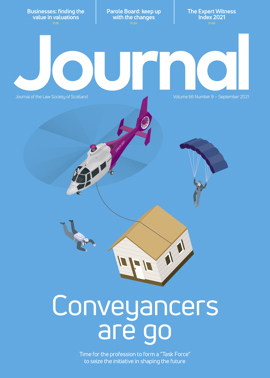Reading for pleasure: September 2021
The Road Trip
Beth O'Leary (Quercus: £14.99; e-book £8.99)
Addie and Deb are driving from Chichester to Scotland for a friend's wedding. Addie's ex-boyfriend Dylan is also heading north with Marcus. If you've ever endured a long car journey with a sibling, in the company of someone you can't stand, while at the same time sitting beside someone who once meant everything to you, accompanied by a work colleague who gives off slightly weird vibes, you'll think you know where this story is heading. It takes, like the journey, a long time to reach its end.
O'Leary's style of writing produces characters who are entirely real, and from the balance of Then and Now it's easy to become interested in who they are, how they've become who they are, and what's going to happen to them.
Perhaps as a result of one too many road trips with people I would now rather avoid, I found the plot a bit less appealing than O'Leary's other novels (The Flatshare (2019), The Switch (2020)), but maybe that's how it's meant to be: you feel Addie's pain in all its cringeworthy detail. After the ups and downs of the journey, when you've asked many times, “Are we nearly there yet?”, there's a hilarious finale to round it off, a bit like finding an unopened packet of fruit pastilles in the glove box, and knowing you're going to make it to the end of the road.
The Transparency of Time
Leonardo Padura; translated by Anna Kushner (Bitter Lemon Press: £12.99; e-book £6.64)
Change and decay in all around I see.
This could be a concise summary of the life mantra of Mario Conde, central character in the book, whom you may have met before in Leonardo Padura's Havana Quartet.
Thirty years have passed since Conde entered our world. Then a senior officer in Havana police, he is now retired, approaching 60, and reflecting on his own mortality. His ambitions to be a writer have all but fizzled out. His part time bookselling business is increasingly difficult, but not as hard as trying to live well on a public service pension in Cuba. Friends have died or emigrated, and Rabbit, one of his closest circle, reveals plans to try his luck in Miami.
Much of Conde's time is spent with his few remaining acquaintances and rather too much cheap rum. (Before you start feeling too sorry for him, he seems to have a remarkably active love life with a very beautiful woman.) From time to time, his talents are put to good use by acquaintances needing private investigation. Thence comes the plot. A school friend, Bobby, gets in touch. He has been taken to the cleaners by a live-in lover who has stripped his apartment. So far, so ordinary. But one of the missing items is a carved black wooden Madonna. According to Bobby, she has miraculous powers.
Señor Padura enjoys using flashbacks, and uses them to very good effect. We trace the statue's history, beginning in chapter 2 which is entitled “Antoni Barral 1989-1936”. Later chapters place Barral variously in the Spanish Civil War in 1936, the Catalan Civil War in 1472, and as a fleeing Knight Templar in 1291. Somewhere in each adventure we find a sea captain variously named Rogelio Flores or Roger de Flor.
That's as much plot as I plan to reveal. I have read a few of the Conde books now, and feel that I know his circle. His former subordinate Manolo, Conde's inner crew of Rabbit, Skinny Carlos, paralysed by a bullet in Angola, Josefina, and of course the fragrant Tamara. Padura knows we know them, so much so that he devotes a small chapter near the end to hint that, actually, Antoni Barral didn't exist as a single character. (Unlike Conde et al, obviously.)
Padura is a very fine writer. This is the best constructed and most enjoyable of his novels which I have read thus far.
The Man with the Silver Saab
Alexander McCall Smith (Little Brown: £18.99; e-book £10.99)
This is another outing for Ulf Varg, the Head of the Department of Sensitive Crimes within the Swedish Police Force in Malmo. Ulf Varg has a dog, the dog is badly wounded in an attack, and en route to the vet, Ulf puts on his blue light to beat the traffic. The dog, Martin, bleeds on the back seat. So begins a series of incidents: Ulf is called to a disciplinary hearing; his car is impounded as a potential crime scene.
The meat of this light and effervescent novel is misdemeanour in the art world. A painting is evaluated but appears to be switched, with the result that Anders Kindgren's professional reputation is asunder. As we have long come to expect, Professor McCall Smith brings characteristic humour, pathos, and characterisation to his books. There is the traditional insight to the human psyche and how colleagues at work or would-be lovers interact. A light relief from all that is currently around us.
Regulars
Perspectives
Features
Briefings
- Civil court: Legacy of COVID
- Corporate: The enigma of economic duress
- Employment: where will work be found?
- Intellectual property: David v Goliath battle continues
- Agriculture: Crofting disputes: some first principles
- Sport: Arbitration – within the rules?
- Property: ADS: the hidden traps
- In-house: On harm, stakeholders and risk management
In practice
- Ask Ash: Colleague's chat is my privacy
- Lockdown no more
- The Word of Gold: The potency of passion
- Get interactive at the Law and Technology Conference
- Ten red flags for conveyancers
- The Eternal Optimist: So, what do you want to be?
- Commissary: the top 10 failings
- Mobility challenges – and the kindness of strangers
- When all is remote






